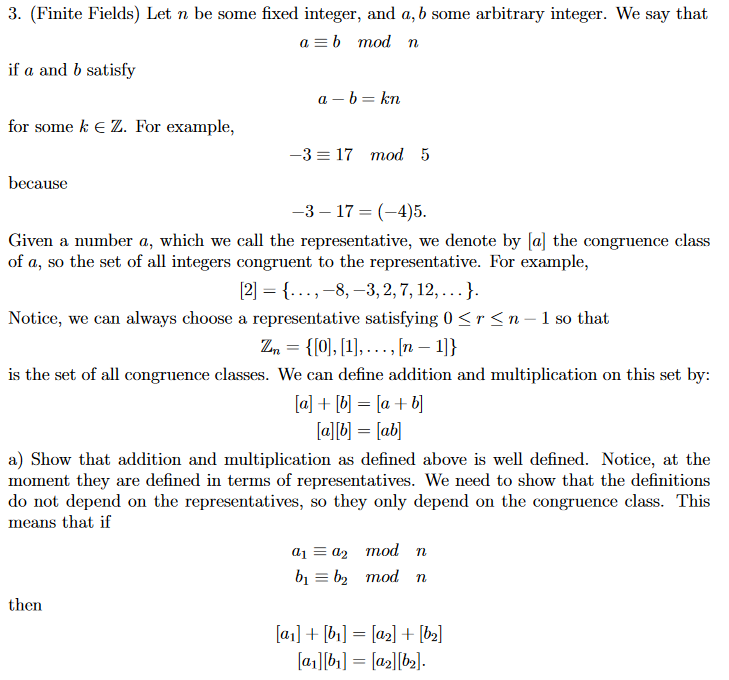Question
(Finite Fields) Let n be some fixed integer, and a,b some arbitrary integer. We say that a-=b,mod,n if a and b satisfy a-b=kn
(Finite Fields) Let
nbe some fixed integer, and
a,bsome arbitrary integer. We say that\
a-=b,mod,n\ if
aand
bsatisfy\
a-b=kn\ for some
kinZ. For example,\
-3-=17mod,5\ because\
-3-17=(-4)5.\ Given a number
a, which we call the representative, we denote by
athe congruence class\ of
a, so the set of all integers congruent to the representative. For example,\
[2]={dots,-8,-3,2,7,12,dots}.\ Notice, we can always choose a representative satisfying
0 so that\
Z_(n)={[0],[1],dots,[n-1]}\ is the set of all congruence classes. We can define addition and multiplication on this set by:\
[a]+[b]=[a+b]\ [a][b]=[ab]\ a) Show that addition and multiplication as defined above is well defined. Notice, at the\ moment they are defined in terms of representatives. We need to show that the definitions\ do not depend on the representatives, so they only depend on the congruence class. This\ means that if\
a_(1)-=a_(2),mod,n\ b_(1)-=b_(2),mod,n\ then\
[a_(1)]+[b_(1)]=[a_(2)]+[b_(2)]\ [a_(1)][b_(1)]=[a_(2)][b_(2)]. 
Step by Step Solution
There are 3 Steps involved in it
Step: 1

Get Instant Access to Expert-Tailored Solutions
See step-by-step solutions with expert insights and AI powered tools for academic success
Step: 2

Step: 3

Ace Your Homework with AI
Get the answers you need in no time with our AI-driven, step-by-step assistance
Get Started


